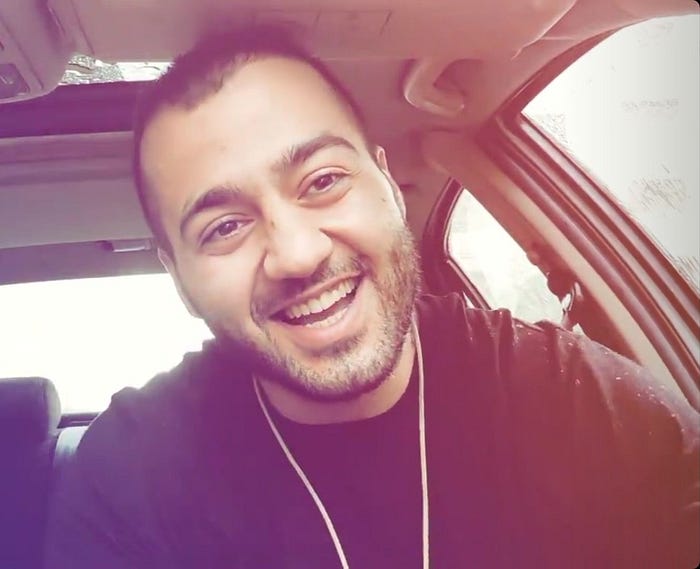We will meet Toomaj Salehi through his lyrics…
We live in the age of science, women are beaten for their beauty, thrown in the back of a police van, taken to unnamed prisons.
Words like these are the reason the 33-year-old rapper was charged last month with "spreading corruption on earth" and has been sentenced to death in his beloved homeland of Iran.
Salehi was first placed behind bars in 2021 for his song Soorakh Moosh (Rathole). It's an evocative track that went viral in days, as it poetically calls upon people (particularly the Iranian diaspora in the West) who turn a blind eye to the crimes of the Islamic Republic of Iran.
If you cover your eyes, your hands are drenched in blood.
Arrest was supposed to silence Salehi, but when released on bail, he rapped against the regime with even more fervour. He spoke of women's rights, corruption, child labour, police brutality and impunity.
He showed his face in music videos, he'd often walk the streets of Iran proudly revealing his location, and he acted like there wasn't a drop of fear coursing through his veins.
The regime sacrifices a million for one, do you think citizens are your slaves, you expect people not to eat bread so yours is buttered.
— Toomaj raps in Normal, a damning critique of the social hierarchy
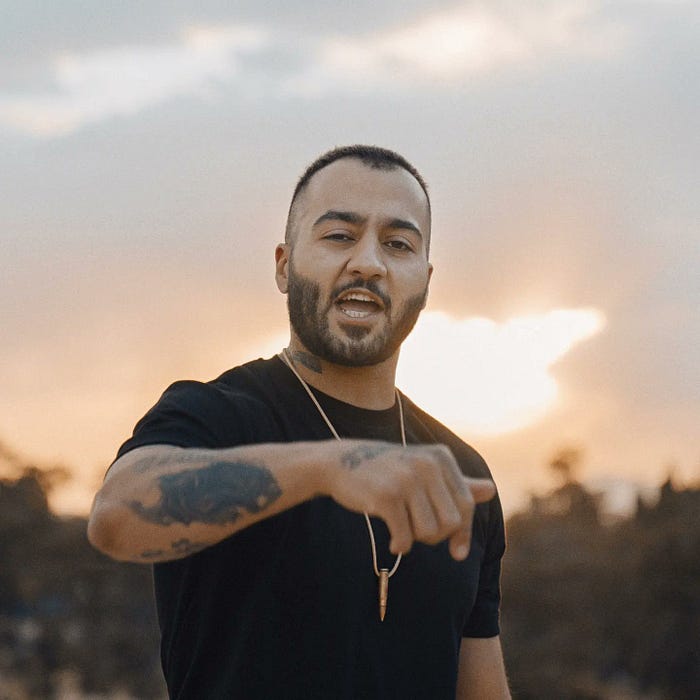
Mahsa Amini's Murder
The world's eye fixed on Iran in September 2022 when 20-year-old Jina Mahsa Amini was arrested in Tehran for incorrectly wearing a hijab. When news broke that she had been beaten to death in police custody, Salehi expressed his outrage and publicly supported the resulting Jin, Jiyan, Azadî (Women Life Freedom) uprising.
The movement started at Amini's funeral in Iran's Kurdistan province. Women took off their headscarves and took to the streets. They were joined by men and women from all ethnic groups and walks of life across the country. Then, by solidarity groups in Turkey and Australia, Canada and Germany.
Iran was brought to a standstill: 20,000 were arrested and over 500 killed as citizens tried to take off the tightening noose imposed by Supreme Leader Ali Khamenei and his troop of Shi'a clerics, the nation's guarantors and supervisors of Islamic values.
In Iran, there is currently unprecedented demand for secular rule. According to leaked data from Iran's Ministry of Culture, 73% of the population want religion to be separated from state.
Unfortunately, the mass mobilisation of people did little to shift Iranian life. Government crackdowns have, in fact, intensified. The morality police are still hurtling around Iran. 7,000 officers (men and women) can issue warnings, impose fines and arrest those who don't comply with the laws of the land, reports the BBC.
Last week, this clip of the morality police violently arresting (though frankly it looks like a kidnapping) a woman for 'improper clothing' surfaced on X.
The government has also started using surveillance cameras to spot and locate unveiled women, and a mandatory prison sentence was introduced for people who oppose the hijab rules on social media.
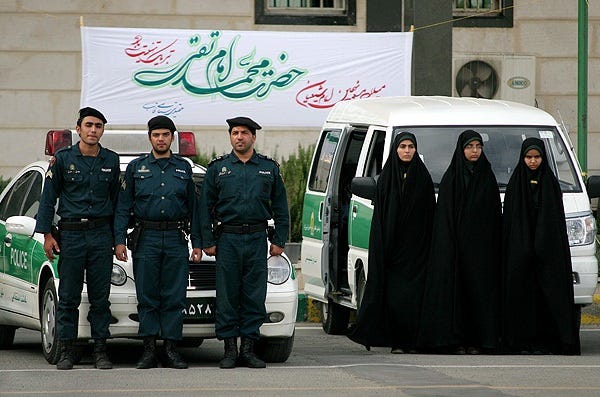
As For Iran's Courageous Rapper
Salehi was hauled back to jail in October 2022, as the police declared him, "one of the leaders of the riots."
For 252 days he wilted in a jail cell, only to be released again in November 2023.
Salehi got to spend 12 days with family and friends before he was arrested once again. This time, for uploading this heart-breaking 14-minute video about his treatment in prison.
You haven't forgotten the people who are still in confinement, you're amazing.
You are amazing. You are amazing. You are amazing.
I was severely tortured during the time of my arrest. [I suffered beatings, 8 to 9 months in solitary confinement, sensory deprivation, broken bones, and being injected with adrenaline by the guards] so that I didn't lose consciousness and was made to feel the full possible extent of pain.
That's it, and it's okay, I hope this isn't upsetting for you, I don't want to upset you by talking about these things. They're bones, they heal.
I want to thank you once again, you are amazing, you are the strength of our hearts.
Corruption on Earth
As his confessional video went viral, Salehi spent this last winter in Isfahan's Dastgerd prison in central Iran, awaiting yet another trial.
This time, the Islamic Revolutionary Court in Isfahan was attempting to overturn the Supreme Court's previous decision to release Salehi on bail back in November 2023 for his role in the Women Life Freedom protests.
It is unprecedented for a lower court (like Isfahan) to reverse a decision by the Supreme Court — and yet, last month, Salehi was charged with "causing corruption on earth" and given the maximum punishment: death.
"It is still completely unclear how this verdict came about," Salehi's political sponsor in Europe, German Member of Parliament Ye-One Rhie, tweeted soon after the verdict. "It is unbelievable how irresponsibly and arbitrarily the Iranian regime treats defendants. It is impossible to recognise the rule of law in the chaos of the courts in charge."
Rhie's statement is particularly ominous when we consider that 834 people were executed in Iran in 2023 —this was a 43% increase compared to 582 in 2022, according to the World Coalition Against the Death Penalty. Rates continue to spike, as two more people were hanged by the regime just last week.
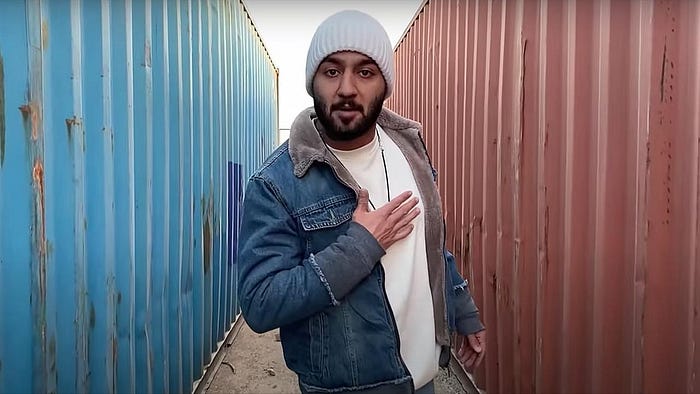
Two years ago, in September 2022, two LGBTQ+ activists, Zahra Sedighi-Hamadani (known as Sareh) and Elham Choubdar sat in the desolate dark of the women's ward of Orumiyeh Central Prison.
Like Salehi, they had both been charged with "spreading corruption on earth" and sentenced to death for expressing who they are and what they believe.
Sareh was a 29-year-old Kurdish-Iranian LGBTQ+ activist who owned a restaurant in Erbil, Iraq, reports 6Rang (The Iranian Lesbian and Transgender Network), in their Fact Sheet on Sareh's case.
A mother of two (her daughter was 12 at the time, her son, 9), Sareh fell in love with a woman after getting a divorce from her first (forced) marriage. They moved in together and lived as an openly lesbian couple.
As well as visibly presenting as queer — a huge form of daily activism in itself — Sareh founded an LGBTQI+ Telegram group (with over 1200 followers), and used Instagram as her main tool for normalising, celebrating, and advocating for LGBTQ+ rights.
"I knew Sareh before [she was detained], she was really active on her social media," Shadi Amin, Director and Co-ordinator of 6Rang, the largest Iranian LGBTQ+ organisation, told me over the phone at the time.
"For a lot of Iranian LGBTI youth, she was a role model because she showed her lifestyle and it's exactly what the youth in Iran wish they could have sometime in their private life, too."
After Sareh appeared on BBC Persian, she took the decision to flee to safety in Europe. As she left Kurdish Iraq, she was caught and arrested by the Iranian police, and sentenced by the Urmia Revolutionary court in Iran.
Sareh's friend and fellow lesbian activist, 24-year-old Elham Choubdar also received a death sentence at Urmia. Choubdar was publicly and unashamedly queer in a country in which consensual same-sex sexual conduct between adults is criminalised and punished with flogging and the death penalty. She appeared on Sareh's Instragram Lives, discussing love and relationships, and was arrested four weeks after Sareh.
"Two young women will be killed because of their actual or perceived sexual orientation, in 2022," said Amin, in incredulity.
Their charge: "spreading corruption on earth" by allegedly "promoting homosexuality," "spreading Christianity," and "forming corruption and prostitution gangs." The latter refers to smuggling/human trafficking of young girls, which the UN asserted was related to Sareh's efforts to assist at-risk people fleeing Iranian territory to the relative safety of the neighbouring Kurdistan region of Iraq.
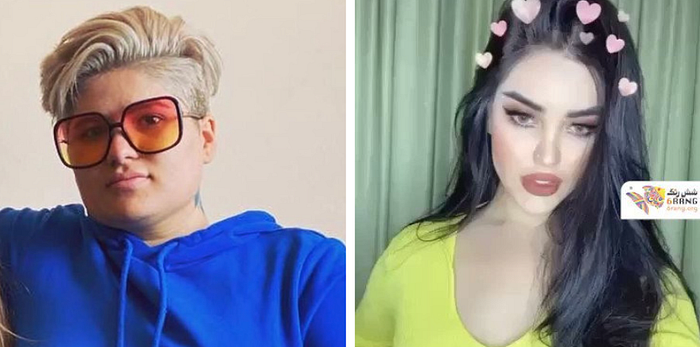
#FreeSareh
Shadi Amin and 6Rang pumped press releases, statements, fact-sheets, and gave countless interviews to draw the world's eye to this case. They received over 90,000 signatures on an online petition created with All Out.
I interviewed Amin for hours on the phone, and she kept me updated on the case. She was completely invigorated by the activation of the international community — Amin met with the UN, the EU's Ambassador for Human Rights, the EU's Equalities and Gender Rights staff, "all of these international mechanisms made for protecting LGBTI people worldwide and they are involved now, in this situation," said Amin.
"This is the first time, at least in the world's existing memory — certainly since we have protection laws in a lot of countries for LGBTI people — that two women face the death penalty for actual or perceived sexual orientation," Amin said.
"We have the cases of killing the lesbian and trans people on the street, but to kill them officially with such judgment, I don't know of a case like this. It has sparked global outrage, a global movement for the lesbian community. And importantly, it has also sparked outrage in the Iranian community," said Amin.
Notably, 6Rang posted clips of Sareh on YouTube, giving the world a tangible connection to her. You really see her: her strength, her poetry, her dedication, her silent, defiant commitment to her cause, to freedom. "These videos have been necessary for the people to empathise with her," said Amin.
This experience, of viscerally seeing and feeling the injustice being perpetrated by the Iranian state, also unfolds when you watch Toomaj Salehi rap and speak from his indomitable heart.
LGBTQ+ Activists Released
Half a year passed with no positive updates from 6Rang, despite Amin's optimism — which I focused on when I wrote about Sareh and Elham Choubdar for GO Magazine— Amin, and the BBC felt the chances of overturning the death sentence were very slim.
Then one morning in March 2023, Amin texted to say that both Sareh and Choubdar had been released on bail from Urmia Prison.
It was a euphoric moment. I celebrated with queer and Iranian activists I'd never met in person — from New York, Dusseldorf, Tehran and Istanbul. Though many of us are writers, in our complete elation, all we could really do is shower each other in exclamation marks and emojis.
Last December, there was more reason to rejoice when Amin sent a photo of a smiling Sareh clutching a rose and the news:
I am thrilled to share the wonderful news that this morning, Sareh safely arrived in Germany. Attached is one of the first photos of her, taken at the arrival hall at the airport.
I am writing to express my deepest gratitude to each one of you for your invaluable contributions. Your efforts were instrumental in securing her freedom and facilitating her journey to a safe country. Your unwavering solidarity played a crucial role in saving her from a death sentence and subsequently ensuring her release. On behalf of 6Rang and the Iranian LGBT community, I can only extend a BIG THANK YOU!
Amin repeated the power and potential of global activism — Iranians in Iran, in the diaspora and supported by allies around the world. A similar process has been activated for Toomaj — though at an unprecedented scale.
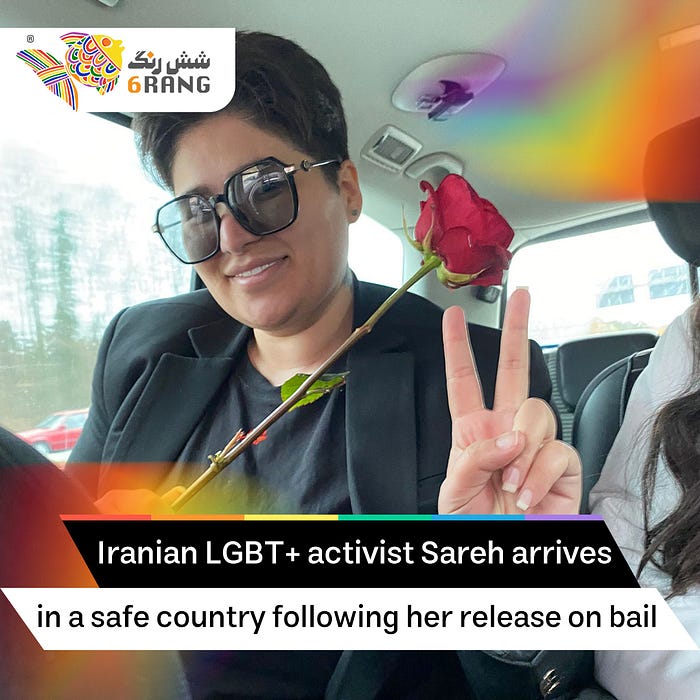
#FreeToomaj
If global solidarity can indeed help to #FreeToomaj — as it seems to have helped with Sareh's appeal — rapper Toomaj Salehi may well be on his way to freedom, and may well become a national and international hero in the process.
Practically speaking, an urgent appeal has been filed with two United Nations Special Rapporteurs on behalf of Salehi's family, and his lawyers have re-appealed to the Supreme Court.
In addition to this, over 100 of the world's leading cultural figures — the likes of Margaret Atwood, Coldplay and Sting — have signed a statement demanding his release:
Art must be allowed to criticise, to provoke, to question and to challenge authority. That is both our right and our duty as artists.
As a generation-defining artist, Salehi speaks truth to power in a way most of us wouldn't dream of.
Though he currently sits in deafening silence (prison guards supposedly forbid others from speaking to him), Salehi's fearless lyricism has opened eyes and hearts across his country, and the world.
Salehi has been caged and silenced once again, but his story has brought us together and drawn us to the streets in our droves. Unperturbed by arrest, torture, police brutality and the threat of death; the Iranian state's treatment of Salehi, proves the accuracy and necessity of his music, and the truth of his scathing lyrics.
In the closing bars of his defiant track Normal, he gives a salient reminder of the power of unity: it is time to show Salehi what his freedom means to us, and the solidarity his music has sparked.
To hell with the regime officials, We are all united, We want freedom Locked hands Human chains We are all united, We want freedom The power of unity is ours.

What can we do:
- Follow Toomaj on Instagram, X & Youtube
- Watch this Iranian-centered #FreeToomaj video by (and follow) the Boroumand Center for Human Rights in Iran.
- Share Toomaj's story — #FreeToomaj
- Sign this Amnesty International petition, this Change.Org petition, or this Middle East Matters petition
- Stay abreast with political, religious and social life in Iran through Iranian-led media channels like Iran International and IranWire.
Read the original story on Sareh and Elham Choubdar at GO Magazine.
For more on LGBTQ+ activism, justice and the state — read the tragic story of Zak Kostopoulos' murder on the streets of Athens by the Greek police.
